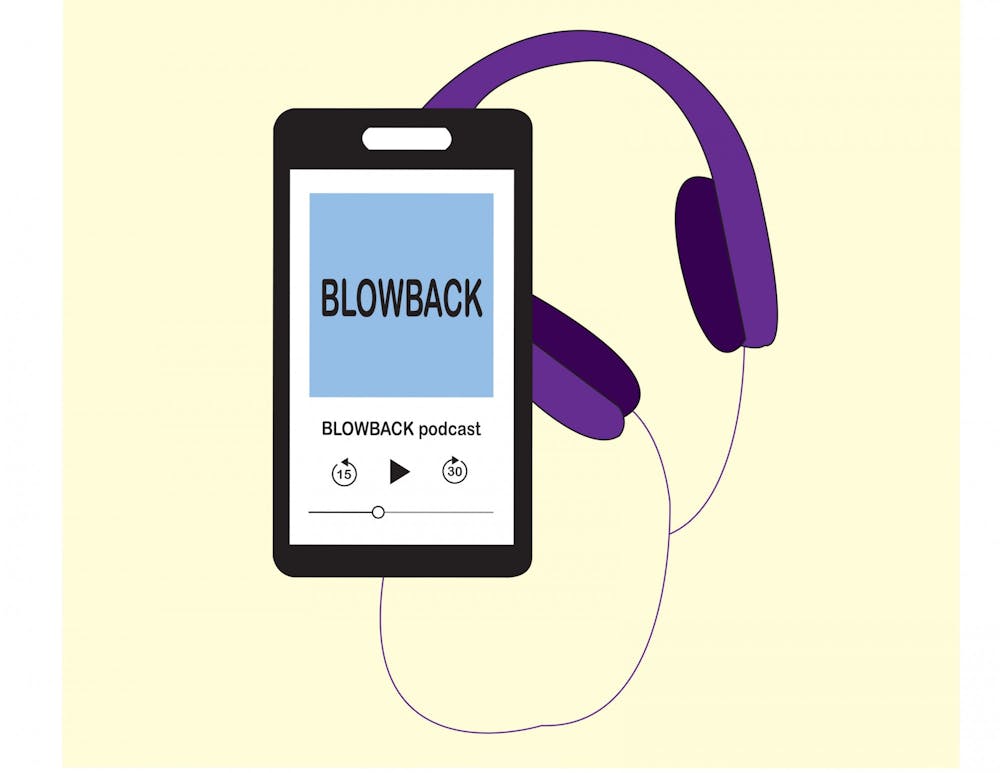We were all too young to remember the Iraq War when it happened, and it wasn't taught in U.S. history books—probably because we were too busy learning about the Revolutionary War for the tenth time. By the time we grew up, the Iraq War left the collective consciousness and became a relic lost to time, a mistake that probably never should have happened. But it was much more than that: The Iraq was an elaborate network of lies concocted by our government that immediately backfired at the cost of hundreds of thousands of lives and taxpayer money. Now,it's more relevant now than ever.
Blowback, a podcast created by co–hosts Brendan James, who also produced the podcast Chapo Trap House, and Noah Kulvin, a reporter who's written for the likes of Vice and New York Magazine, delves deep into the history of the Iraq War. They unpack the moments leading up to the conflict, the United States' post–colonial history, the state of Iraq before and after the war, and so much more. The ten–episode podcast leaves no stone unturned, especially when it comes to dissecting the lies of the Bush administration and the role the media played in furthering its agenda.
James and Kulvin begin their podcast discussing whether there was even a need for a show about the Iraq War. They explain that there seems to be collective amnesia regarding the events before, during, and after the conflict. The duo created the podcast to raise awareness about the sheer brutality of the United States' persistent war crimes, drawing from a wide variety of news sources to give their listeners a full picture of what actually happened.
To sell the war, the Bush administration peddled many exaggerations, the main ones being reports of Weapons of Mass Destruction (WMDs) in Iraq and a trumped–up relationship between Osama Bin Laden and Saddam Hussein. The podcast also explores the media publications that helped sell the war. Utilizing his background as a reporter, Kelvin explains that outlets such as the Washington Post and New York Times all made the case for war and have since apologized. Even Saturday Night Live hopped on the bandwagon, making fun not of the administration, but of the UN security experts that attempted to stop the war.
Blowback also introduces us to a wide variety of characters, all of whom sought to satisfy their political agenda, and are, in hindsight, pretty stupid. Think Ahmed Chalabi, a corrupt investor, and politician who was exiled from Iraq and helped to fabricate lies that led to the war; Paul Bremer, the man considered responsible for the dissipation of civility in Iraq and for the rise of the Islamic State; and of course, Dick Cheney and Donald Rumsfield, the faces of the Iraq war and the evil corruption associated with it.
I've personally struggled with the specifics of the Iraq war and found it difficult to navigate what had actually happened behind biased news outlets, misinformed government campaigns, and fervent nationalism. Blowback unpacks all of this information in chronological order, beginning with the 1958 Iraqi Revolution, United States' relationship with Saddam Hussein in the 1980s, and 9/11's role in providing a new, exciting adversary for the United States to assert their dominance on.
The podcast also utilizes a comedic take on the events, employing engaging audios and skits to get their points across. The first episode begins with a phone call between Bush and Hussein, in which Bush calls Hussein to make a case for an invasion before bumbling into incoherent chaos and hanging up the phone. It's a perfect introduction for what's to come and a required listening for anyone who desires to better understand the Iraq War and the state of the military–industrial complex in the United States.
We grew up in a unique era of war that dominated national dialogue, yet was too distant for its full impacts to be felt. For Iraq, our improvised intervention left several hundreds of thousands dead and severely destabilized the region. It would be irresponsible for us to forget the atrocities of war, and we owe it to the world to do better by holding our institutions accountable. Blowback does a wonderful job of ensuring we never forget.

